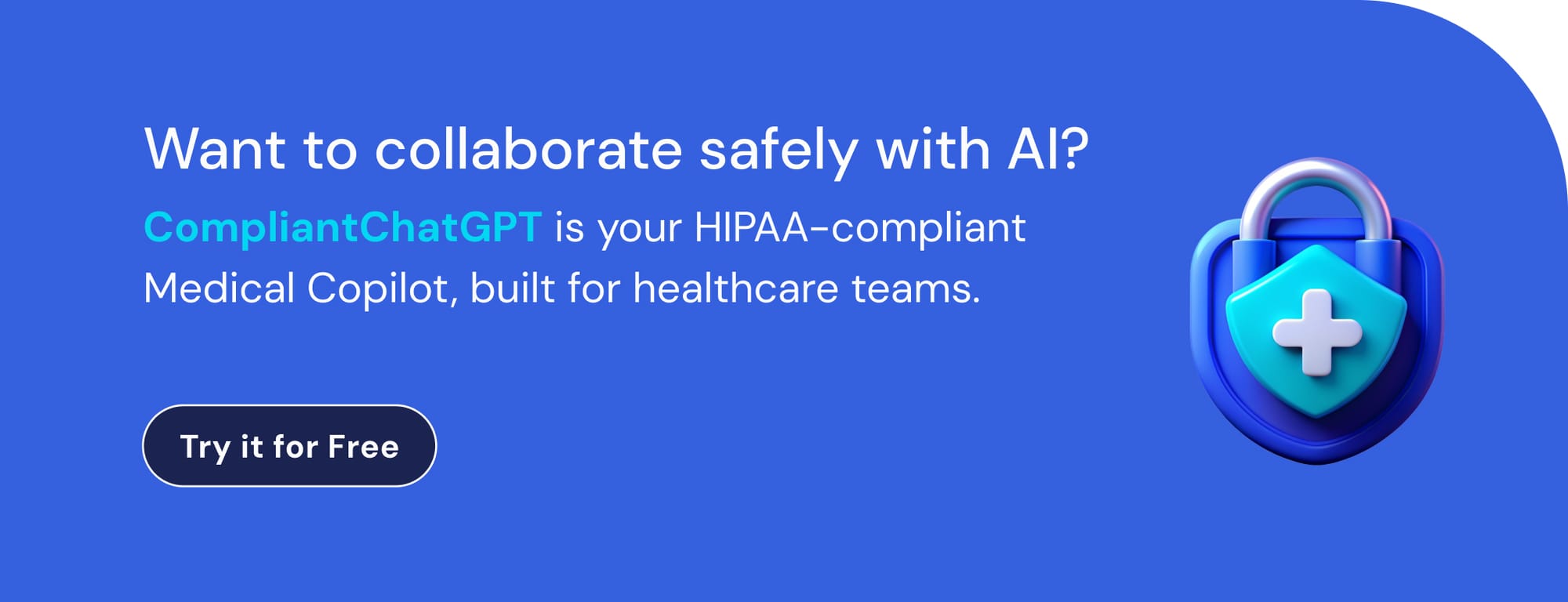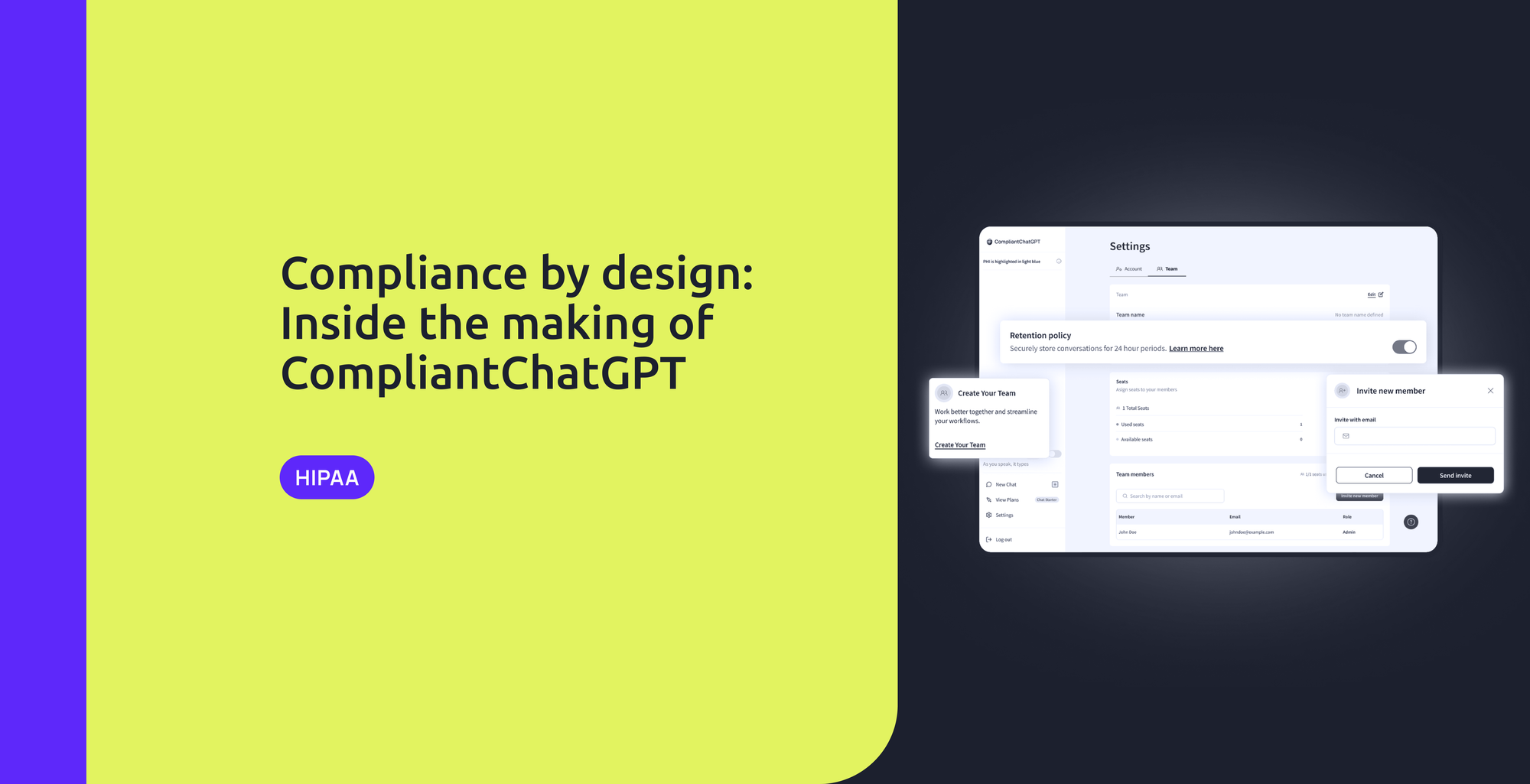Artificial intelligence in healthcare is moving fast, from documenting clinical notes to supporting diagnostics. AI in healthcare is becoming an everyday ally for clinicians.
But here's the tension: as the capabilities grow, so do the risks. General-purpose AI platforms like ChatGPT are powerful, but they aren't HIPAA-compliant. And that means a straightforward truth: protected health information (PHI) should never go into them.
That gap between intelligence and safety inspired a new approach:
CompliantChatGPT, conceived initially at Light-it's Innovation Lab as a secure medical AI chatbot, has evolved into a comprehensive medical copilot explicitly designed for healthcare teams. What does it mean for them? Less time buried in manual work and more time where it counts, connecting with patients.
Let's dive into what drove us to build this tool:
Table of Contents
- Why security comes first
- Built to reduce healthcare burnout
- The real complexity behind the code: Interoperability
- AI in Healthcare: The bigger picture
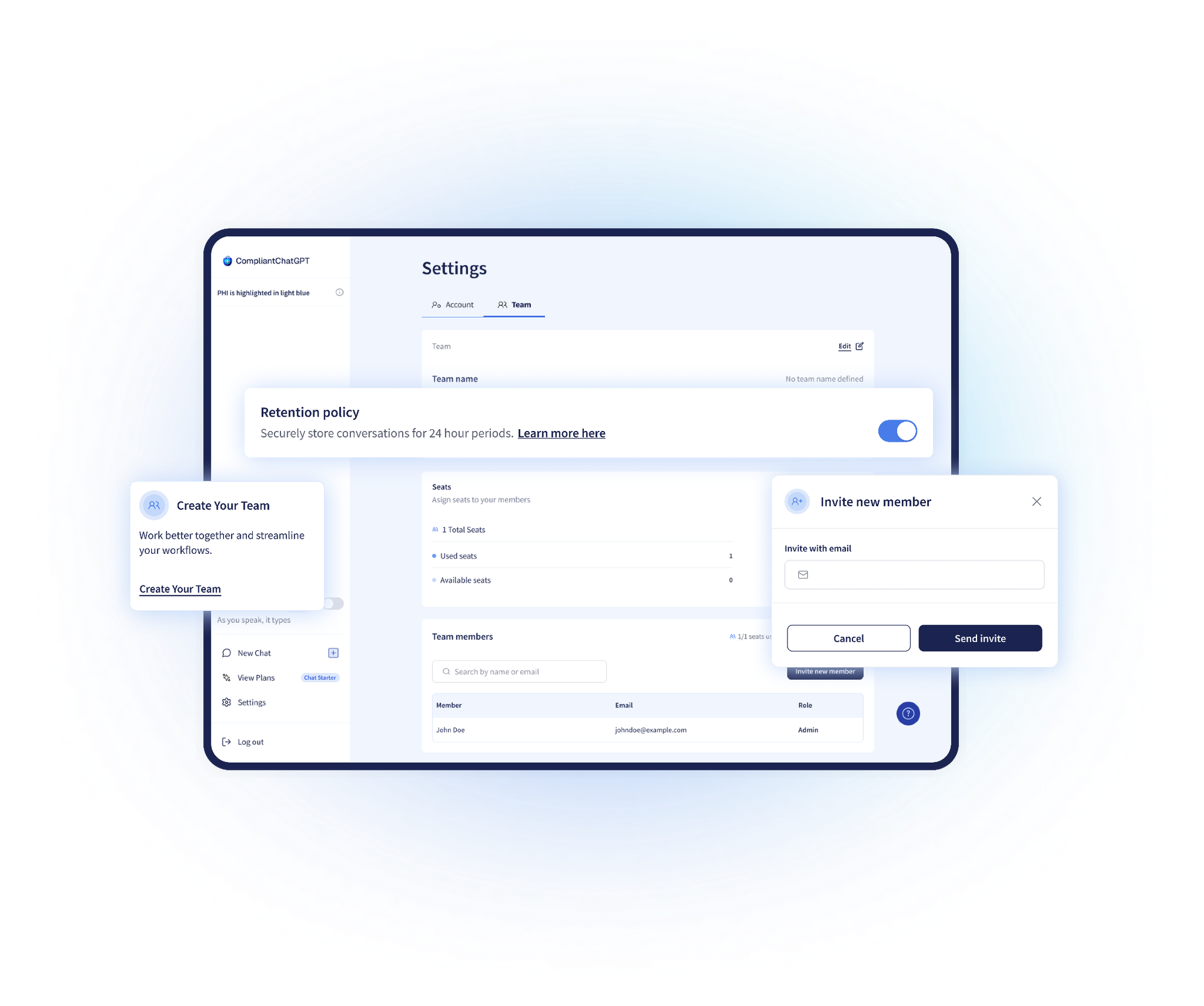
Why security comes first
We all know how AI (GenAI) works now: it utilizes algorithms and huge amounts of data to try and simulate human intelligence, learning from patterns, making predictions, and automating decisions.
In healthcare, this means analyzing medical images, helping predict disease risk, personalizing treatment plans, and supporting general administrative tasks. AI can make care more efficient, but only if it protects the trust that defines it. And because it typically learns from the data it receives, security concerns cannot be dismissed. Our team saw a big opportunity: how can we make the most of AI while still ensuring patients' information is safe?
That question matters because, in healthcare, every data point represents a person's story, and protecting it builds lasting trust. And with that question in mind, we started working. It needed to be reliable for patients and clinicians alike. How did we face this challenge?
We developed CompliantChatGPT to identify PHI in every query, replace it with tokens, process the anonymized message, and then safely restore the original data when the response is returned.
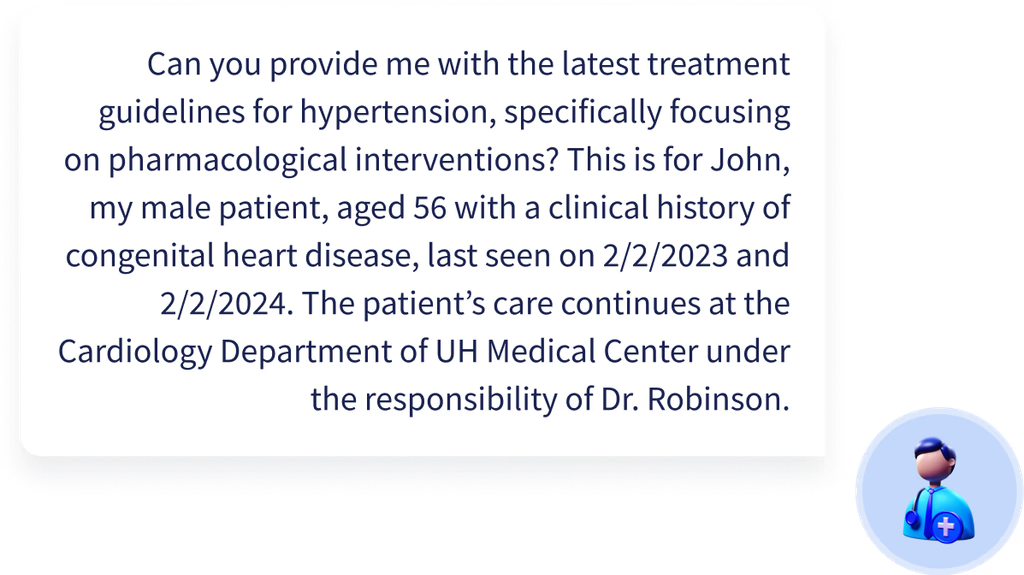
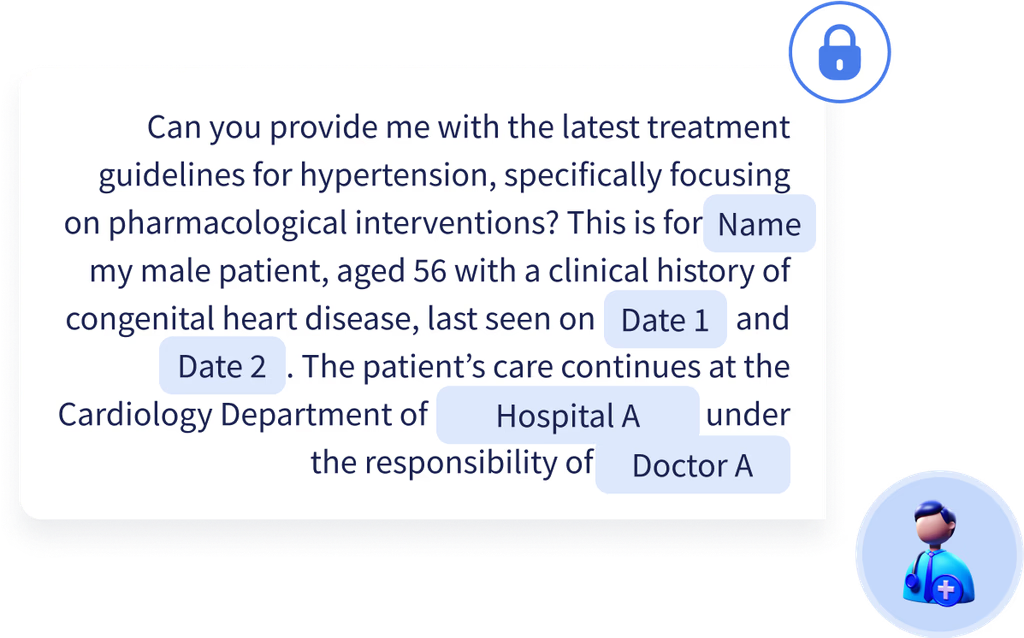
It's fully encrypted (AES-256 for data at rest, TLS 1.2 in transit) and integrates role-based access with audit logs, creating a true HIPAA-compliant AI assistant.
This means clinicians can talk to artificial intelligence about real cases safely, to analyze labs, generate clinical notes, AI for documentation, diagnostics, or plan treatments, without risking compliance.
Built to reduce healthcare burnout
Our second primary concern was clinician burnout. Working firsthand with clinicians in this industry, we understand how much administrative tasks can detract from quality care and become a burden. Documentation and administration remain top drivers of healthcare burnout. Here is where we thought AI could be useful; we were on a personal mission to give professionals time back so they could do what they do best. That's the real promise of AI in healthcare: turning hours of admin into minutes, and giving clinicians time to focus on patients, not paperwork.
Building CompliantChatGPT was not only about creating a chatbot but also about making something like a personal assistant. To achieve this, we decided that speech-to-text and notation were crucial. One key feature we added was the possibility of capturing live speech/encounters, automatically transcribing them to text, and letting the AI summarize it, extract action items, or insert into notes
The result is a medical copilot that, through its medical scribe modes, clinicians can instantly turn short dictations into structured progress notes or SOAP notes, ready to drop into the EHR. The best part? It never gets tired of paperwork. With each note auto-structured and synced, it keeps your records accurate while easing the cognitive load that often leads to burnout.
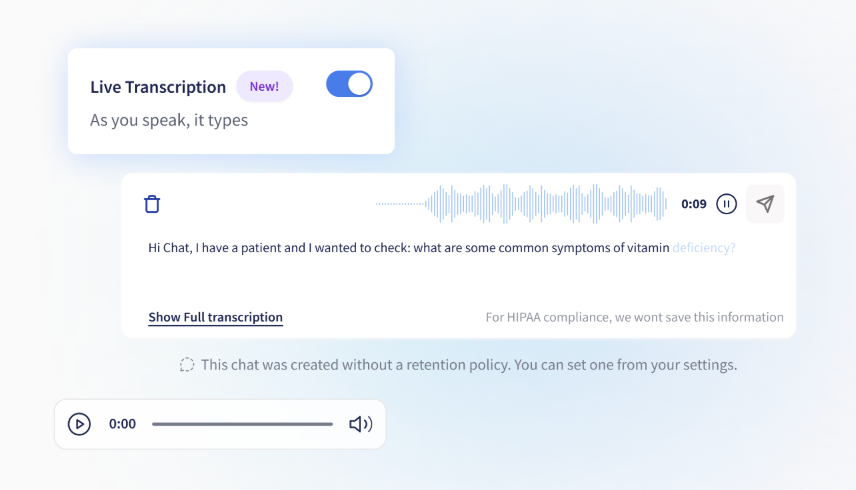
The platform has different modes that help you in very different ways. These modes and functions aren't just technical add-ons; they're practical tools designed to save time, improve accuracy, and make documentation easier for every clinician.
| Function | Mode/Feature | Benefits |
|---|---|---|
| Documentation & Notes | SOAP Note / Clinical Notes / Progress Notes / Notes AI | It generates comprehensive SOAP notes from transcriptions or audio recordings. It can convert audio or text into structured BIRP, DAP, EMDR, or PIE notes, tailored for mental health and clinical documentation. It supports Speech-to-Text Notes and Live Transcriptions. |
| Analysis & Diagnostics | Bloodwork Analysis / Differential Diagnosis / Treatment Planner | These modes analyze patient case descriptions, suggest potential diagnoses (supporting ai disease diagnosis), recommend tests, and outline treatment plans. This facilitates AI diagnostics. |
| Clinical Efficiency | Codification / Drug Interactions | The platform can analyze SOAP notes and generate corresponding ICD and CPT codes, and detect interactions between medications, labeling severity and suggesting management strategies based on trusted sources. |
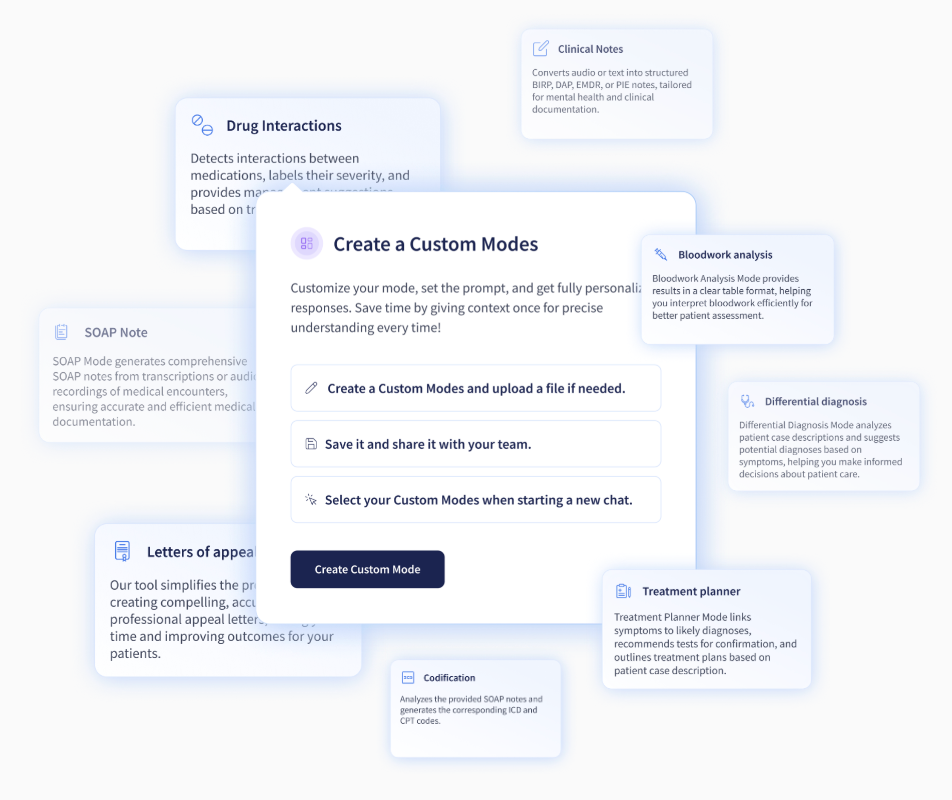
This is AI in healthcare that works with clinicians, not over them. Every safeguard, every workflow, every integration stems from a single principle: AI should amplify human care, not compromise it.
The real complexity behind the code: Interoperability
Most AI platforms for healthcare promise speed and automation, but fall short when it's time to connect with the systems clinicians already use.
If your EHR, telehealth, or communication tools can't "talk" to the AI, you end up with more friction, not less. That's where the real complexity lies: interoperability.
That disconnect creates extra work instead of reducing it. Notes live in one platform, data in another, and context gets lost between clicks. For clinicians already stretched thin, switching between systems isn't just frustrating it breaks focus and slows down care.
That's why interoperability isn't just a nice-to-have. This is what makes AI usable in the real world, ensuring the technology actually simplifies clinical life instead of complicating it.
And that's why we thought of CompliantChatGPT with interoperability at its core.
It integrates directly with popular Electronic Health Record (EHR) systems like Healthie, Medplum (coming soon), Avon (coming soon), and Elation (coming soon), ensuring that data syncs securely, clinical notes update automatically, and workflows stay intact.
It also connects with Zoom, making it easy for healthcare teams to collaborate and document conversations without leaving their existing setup.
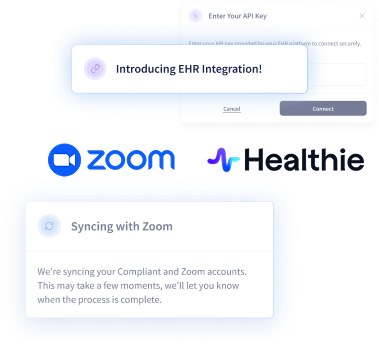
But clinicians do not work alone. Private practices, hospitals, and companies work together in teams to provide the best possible care. So, if the reality of healthcare is working in teams we need the tool to allow smooth collaboration and help them thrive. So CompliantChatGpt allows you to invite team members, assign roles & permissions, manage multiple chats/threads in parallel, and share context across users.
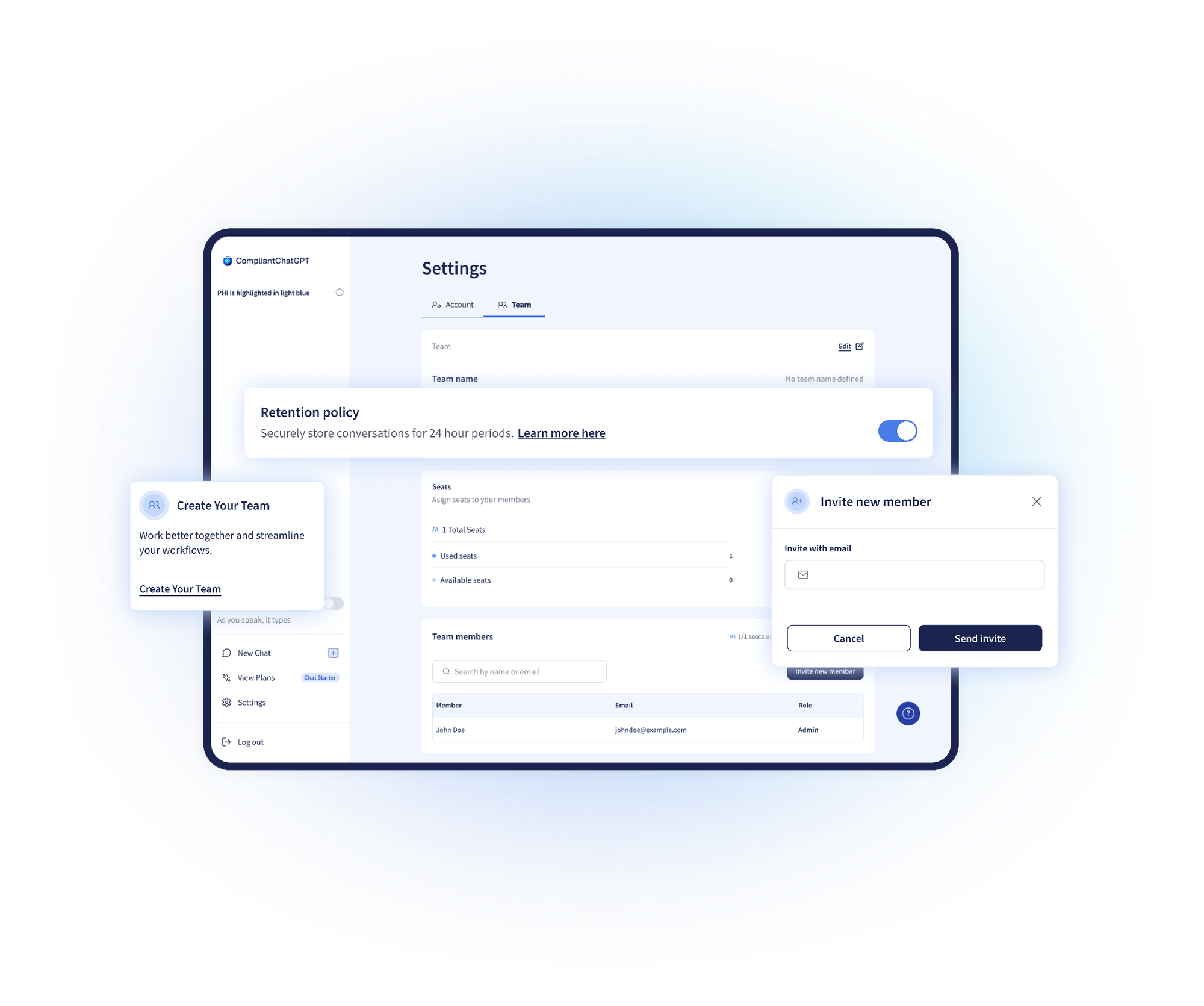
In other words, CompliantChatGPT doesn't live on its own digital island; it becomes part of your daily ecosystem.
Innovation means something different, not adding more technology, but helping the technology you already trust work better together. That's how care stays human, and technology stays helpful.
AI in Healthcare: The bigger picture
As artificial intelligence trends in healthcare evolve, one theme is becoming clear: The future isn't about using general AI to "talk to a doctor online for free."
It's about building specialized, compliant systems that understand medicine, protect patients, and reduce burnout. That's how artificial intelligence in medicine becomes more than innovation and becomes a key aspect of infrastructure for care that's consistent, secure, and human.
Yes, you can find a free AI chat (always ask yourself: if something is free, what are you really paying for in its use? I'll give you a hint: yes, your data). Alternatively, consider exploring ChatGPT Premium, ChatGPT Unlimited, or other AI options.
However, none of those were built with the realities of healthcare in mind, for the clinician in a busy clinic, for the patient whose story deserves privacy, or for the system that needs both innovation and integrity.
CompliantChatGPT fills that gap. It's secure. It's specific. And it's designed for care. Because the future of artificial intelligence in medicine isn't a replacement for empathy, it's a tool to protect it.
